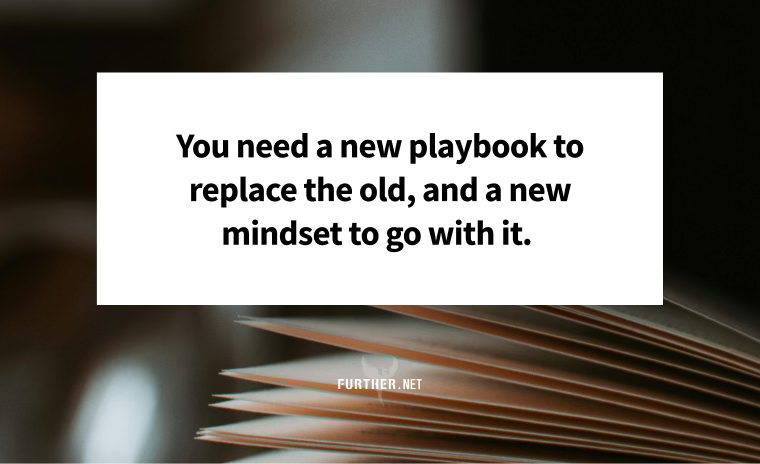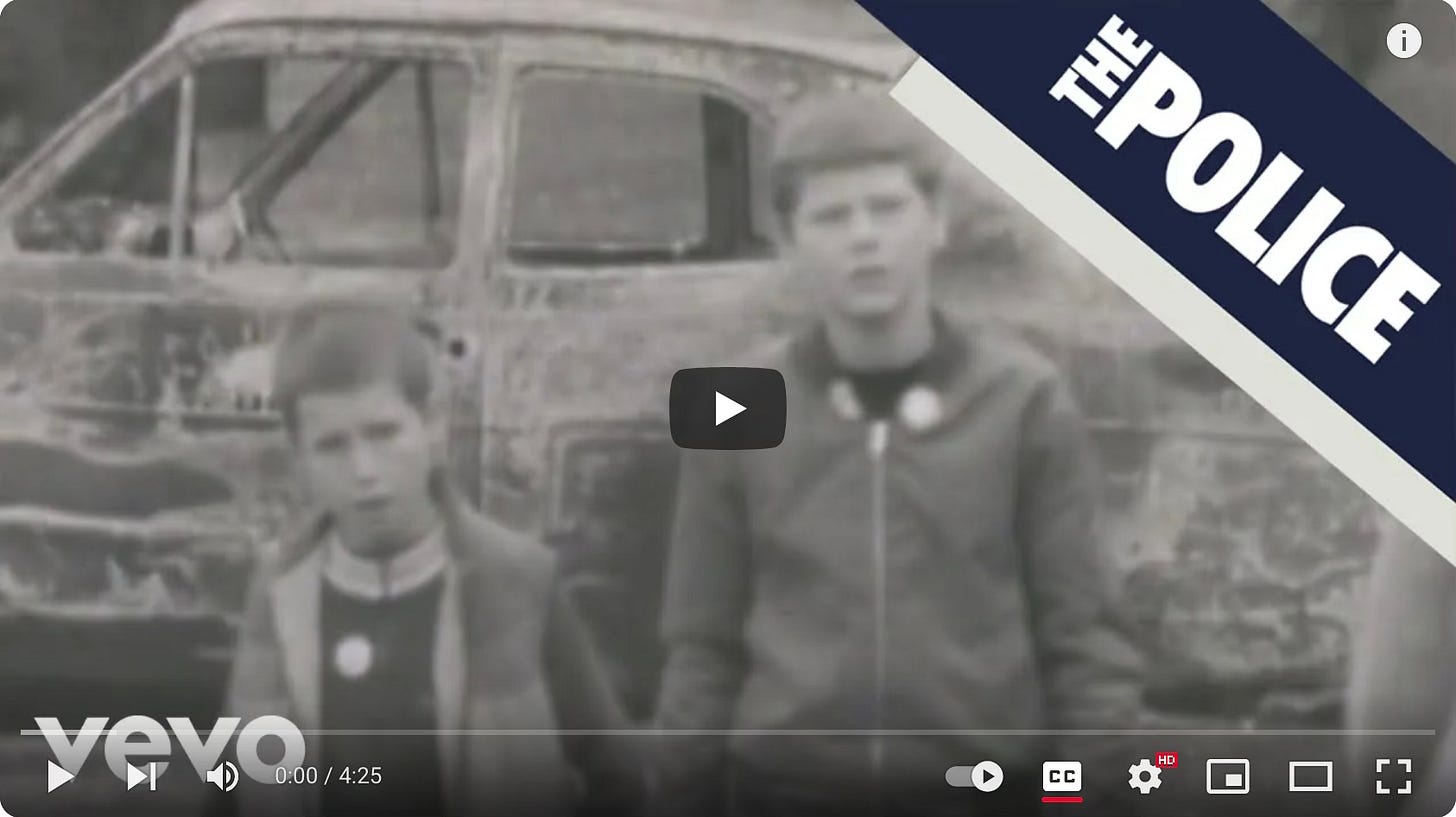It’s Time to Burn the Old Playbook
Your job security is an illusion at a point when you can least afford to lose your income.
If you're between 45 and 65, you’ve likely realized the game has changed.
The old playbook (get good grades, climb the ladder, retire at 65) is broken. The new reality requires new strategies.
We grew up thinking our late 50s/early 60s were "wind down" years. Play it safe, think small, prepare for decline.
But the data shows the opposite. Productivity increases with age for knowledge work, and older entrepreneurs outperform their younger counterparts.
Time to rewrite the script. Or if you prefer, adopt a new playbook.
Your decades of expertise aren't consolation prizes for getting older. They're competitive advantages. It’s time to leverage them.
The issue is, just because you see the problem doesn’t mean it’s easy to shift gears into action. You need a new playbook to replace the old one, and a new mindset to go with it.
The Retirement Savings Crisis
If you're like most people in your 50s, you're significantly behind on retirement savings.
The median retirement account balance for Americans aged 50-59 is just $117,000. That's not enough to fund even five years of retirement, let alone the 20-30 years you're projected to live after leaving the workforce.
When it comes to the current retirement crisis, we’re the 401(k) Generation. That means we’re the first cohort to be reliant on a retirement savings vehicle created in 1978.
The “golden years” retirement story we were raised with was a creation of marketers trying to capitalize on the fat pensions held by the 1950s-1960s version of “knowledge workers.” The 401(k) changed that story into a myth for the vast majority of us, all because corporations saw an opportunity to save money by eliminating pensions from benefit packages.
The problem is that the 401(k) was never designed to replace traditional pensions. What began as a supplemental savings vehicle has morphed into something entirely different:
"The great lie is that the 401(k) was capable of replacing the old system of pensions," former American Society of Pension Actuaries head Gerald Facciani tells The Wall Street Journal. "It was oversold."
Yet here we are, with more Americans than ever using these retirement accounts not for their golden years, but to handle today's financial emergencies at record rates.
The Gen X solution? We’ll just work longer.
We’re no strangers to the rug being pulled just as we approach. And it’s true that as society becomes increasingly older due to longer, healthier lives and drastically reduced birth rates, longer careers will become the norm.
Unfortunately, we’re the canaries in a transitional coal mine facing AI disruption, looming recession, and entrenched workplace ageism. Every corporate "restructuring" disproportionately affects older professionals with higher salaries.
Your job security is an illusion at a point when you can least afford to lose your income.
So while every Gen Xer I talk to says they have no problem working longer, the longevity squeeze means it may not be up to you if you’re dependent on the good graces of an employer.
Which means the biggest alteration to the old playbook is one that Gen X leads the world in. And that’s ditching traditional employment and doing our own thing.
It's Time for Timeline Rebellion
One of the key elements of the Further Strategy is Timeline Rebellion. That means beginning the process of living your ideal lifestyle now instead of waiting for some mythical “golden years” retirement.
Thing is, I’m not “selling you the dream.” This is a rational approach to a bad situation that shifts your destiny away from the whims of an employer and into your own hands.
A new book makes the same case.
Joe Pulizzi’s recently released Burn the Playbook isn’t just for those of us at midlife. Things are bad for Millennials and Gen Z as well; it’s just a different set of problems stemming from a system that wasn’t designed for our success.
But given that he’s 52, Joe sees up close and personal what’s happening to our generation:
More of my friends are unemployed, underemployed, or extremely unhappy with their career path. In just the last month before finishing this book, three friends who have been with their companies for 10, 18, and 26 years, respectively, have all been laid off.
Those in our family who have retired are worried they don’t have enough funds to support themselves, and quite a few who bought into the “retirement is bliss” fantasy have lost any and all purpose in their lives.
We must face the facts. The system wasn't built for us to thrive, it was built for a very small percentage of people to thrive.
The ultimate point of Burn the Playbook is the case for starting your own business. Call it entering the Creator Economy if you want. Joe and I both prefer the term content entrepreneurship.
Live Your Life Now by Leveraging Expertise
Chapter 4 of Joe’s book, Expertise Beats Credentials, reveals a truth that’s already familiar to Further Premium members. Worrying that you’re “not qualified” is a misplaced fear.
Why Credibility Beats Credentials plus the follow-up lessons reveal why people choose you over the competition and how to make it happen. Spoiler alert: It’s not where you went to school and where you previously worked.
Burn the Playbook states the truth about modern expertise, and that’s the fact that credentials are an outdated form of gatekeeping. The new reality is that your audience is the only gatekeeper, and how they feel about you and your ability to help them is all that matters.
You’ll also find validation of the fact that new expertise is best created by learning and then teaching it in public as you attract your audience:
You don’t need to stand on a stage to be seen. You need to be a few steps ahead on the staircase and be willing to reach back.
Most audiences don’t want a genius. They want a guide. Someone who speaks their language, remembers what it’s like to be unsure, and can show them what worked.
That’s you. A guide is usually expert enough. If you’re learning, sharing, and applying, it’s already happening.
As an example, I’ve talked about Katelyn Bourgoin. Her Why We Buy email newsletter fuels a multi-six-figure business with 63,000 subscribers as the catalyst.
It’s not that Katelyn was an expert on buyer psychology from the start. Thanks to the weekly newsletter format, she developed her expertise by teaching what she’d only just learned as a potent form of marketing:
“Oftentimes the topics that we’re talking about in the newsletter are presented like I have a high-level understanding,” Katelyn shared. “But really, we’re just learning about it ahead of teaching it to others. There’s a lot that I’m learning about only weeks before I’m sharing examples in my newsletter.”
Whether you’re powered by decades of experience or a strong desire to develop new expertise, you can do this. The only difference between you and those who have done it already is that they took the necessary action.
It’s Time to Retire Retirement
I’ve been saying for years that people at midlife don’t really want to retire. They just want to stop doing what they’re doing now, because it makes them unhappy and leaves them unfulfilled.
Viewed that way, we don’t have a retirement crisis. We have a crisis of meaning, purpose, and autonomy. Or, more specifically, traditional employment is lacking all of the above.
And even if you love your job, it may not love you back.
The ten years before retirement are supposed to be when you “catch up” on retirement savings, given you’re in your peak earning years. But if you’re laid off at 55 or above, odds are you’re not getting another comparable job in the current environment.
The truth is, retirement isn’t that great for the vast majority of people. And people who love what they do don’t want to retire anytime soon.
This brings us to a more personal story of how I know Joe Pulizzi.
Back in 2006, I started a solo blog that made the case that you should create valuable, engaging content to attract an audience. Then, instead of monetizing with advertising, you should create products and services specifically for that audience.
That blog turned into an eight-figure software company by practicing what it preached.
In 2008, Joe came to me and made the case that I should call what I was teaching “content marketing,” a term he was championing. Fast forward to today, and content marketing is a $600 billion industry.
The influential conference and training institute that Joe created is a big reason why the content marketing industry gained massive adoption. And that also resulted in an eight-figure company.
In the decade following our agreement and the beginning of our friendship, Joe sold his company for millions. I did the same with mine.
Joe took some time off. Wrote a novel. Relaxed. But then he jumped right back in, starting a new email newsletter and a conference.
I traveled the world with my family. Worked about half speed for five years after we returned. Now I’m all in with Further, even as my wife and I take advantage of our location independence to roam the planet.
Retirement isn’t on the calendar any time soon for either Joe or me, because we both love what we do, and we continue to have the satisfaction of helping a lot of people along the way.
In fact, helping people is the key to it all. Pick up a copy of Burn the Playbook to discover why solving problems with your applied expertise is the key to creating freedom on your own terms.
Keep going-
P.S. New to Further? Join us here. Interested in Further Premium? Get the details here.
further: flashback
🎶 The Police - Invisible Sun, Ghost in the Machine, 1981 🎶
Sting wrote Invisible Sun while living in Ireland during the Belfast hunger strikes, which coincided with the bloodiest years of the Troubles. While the single hit #2 on the UK charts, the BBC banned the video for using clips from the conflict in Northern Ireland. In other news, Jimmy Kimmel returns tonight. (YouTube)
further: sharing
Enjoy this issue? Please forward this email to friends or share by clicking below:
Or you can earn access to Further Premium by recommending Further in general.
Grab your unique referral code here.
Thank you for sharing Further!




My favorite “Your decades of expertise aren't consolation prizes for getting older. They're competitive advantages. It’s time to leverage them.” I feel encouraged by these words. Thank you.
Thanks for the rec. Just ordered it. It's amazing how on business #3 I have learned to not sweat the small stuff and become a way more focused advisor.